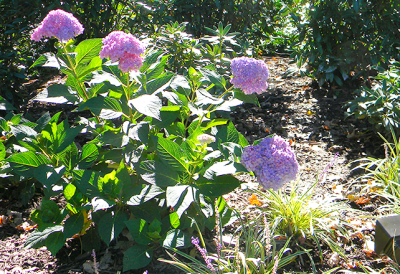 When & What to Plant
When & What to Plant
We are passionate about gardening and we want our clients to be, too – but sometimes it can be difficult to remember when and what should be going into the ground during the year. We’ve put together a list to help you remember what each month entails. As always, if you need help or advice feel free to give us a call!
January
-
Harvest: brussels sprouts, kale, leek, parsnip, and swiss chard.
-
Seeds should be ordered now.
-
All ties and stakes on shrubs should be checked and replaced if necessary, and dead branches should be removed.
February
-
Harvest: brussels sprouts, kale, leek, parsnip, and swiss chard.
-
Sow indoors/undercover: cauliflower, eggplant, leek, lettuce, and onion.
-
Lift and divide perennials as the weather improves.
-
Start preparing borders for planting hardy annuals.
-
Roses and deciduous shrubs can be planted, providing there is no frost or snow on the ground.
March
-
Harvest: brussels sprouts, kale, leek, parsnip, and swiss chard.
-
Sow indoors/undercover: broccoli, brussels sprouts, cabbage, cauliflower, eggplant, leek, lettuce, onion, peas, pepper, swiss chard, and tomato.
-
Sow outdoors: brussels sprouts, cabbage, cauliflower, kale, lettuce, onion, peas, spinach, and turnip.
-
Deciduous trees and shrubs can be planted until the end of the month.
-
Prune any shrubs damaged by frost and to prune all roses ideally before any new growth appears.
-
Aerate the lawn.
April
-
Harvest: brussels sprouts, kale, leek, and radish.
-
Sow indoors/undercover: beans, broccoli, celery, corn, cucumber, leek, melon, okra, pepper, squash, swiss chard, tomato, and watermelon.
-
Sow outdoors: beet, broccoli, cabbage, carrot, cauliflower, kale, leek, lettuce, onion, parsnip, peas, potatoes, radish, spinach, swiss chard, and turnip.
-
Late april is a good time to plant seeds for most herbs.
-
If you have any herbaceous perennials, thin their roots.
-
Sow hardy annuals ‘in situ’ and prick off those sown earlier.
-
Remove any dead flowers from narcissus and other spring flowers.
-
Mow your lawn at medium height.
-
Plant evergreen coniferous trees and shrubs.
-
Prune early flowering shrubs such as ribes and forsythias and cut down hardy fuchsias to soil as new growth appears.
-
Use nets to protect flowers on fruit trees from frost.
-
Aerate the lawn.
-
If the weather is dry, water any newly planted fruits and spray against pests and diseases (do not spray if the trees are in full flower)
May
-
Harvest broccoli, eggplant, lettuce, okra, onion, peas, pepper, radish, spinach, and tomato.
-
Sow indoors/undercover: pumpkin.
-
Sow outdoors: beans, beet, broccoli, carrot, cauliflower, celery, corn, cucumber, eggplant, kale, leek, lettuce, melon, okra, onion, parsnip, peas, pepper, potatoes, pumpkin, radish, spinach, squash, sweet potato, swiss chard, tomato turnip, and watermelon.
-
Tall growing herbaceous plants should be stalked and bedding plants should be moved to frames.
-
The sowings of hardy annuals should be thinned.
-
Mow the lawn regularly and in different directions.
-
Aerate the lawn.
June
-
Harvest beans, broccoli, cabbage, cauliflower, eggplant, lettuce, okra, onion, peas, pepper, radish, spinach, squash, swiss chard, tomato, and turnip.
-
Sow outdoors: beans, beet, carrot, celery, corn, cucumber, eggplant, lettuce, melon, okra, onion, parsnip, peas, pepper, potatoes, pumpkin, radish, spinach, squash, sweet potato, swiss chard, tomato, turnip, and watermelon.
-
Flowering shrubs such as lilac and forsythia should be pruned as soon as they finish flowering to encourage late flush of flower and you should also be removing seedpods from rhododendrons and azalea.
-
Spread compost or shredded bark around trees, shrubs and roses when the soil is moist to help contain valuable moisture during the hot weather.
July
-
Harvest: beans, beet, broccoli, cabbage, carrot, cauliflower, celery, corn, cucumber, eggplant, kale, lettuce, melon, okra, onion, peas, pepper, radish, spinach, squash, swiss chard, tomato, turnip, and watermelon.
-
Sow outdoors: lettuce, radish, spinach, and swiss chard.
-
Cut back half of all perennials that have flowered, such as lupins and delphinums.
-
Remove all faded heads on annuals and cuttings can be taken of non-flowering shoots of shrubs and climbers.
-
Ideally the lawn should be mowed at least once a week, however in dry weather it is advisable to leave your lawn a little longer than usual to enable it to retain moisture from the dew.
-
Prune all fruit trees and fruit should be protected from birds using netting, however, check regularly to make sure no birds get trapped.
August
-
Harvest: beans, beet, broccoli, cabbage, carrot, cauliflower, celery, corn, cucumber, eggplant, kale, leek, melon, okra, onion, peas, pepper, potatoes, pumpkin, radish, spinach, squash, swiss chard, tomato, turnip, and watermelon.
-
Sow outdoors: lettuce, radish, spinach, and swiss chard.
-
Aerate the lawn.
September
-
Harvest: beans, beet, broccoli, cabbage, carrot, cauliflower, celery, corn, cucumber, eggplant, kale, leek, lettuce, melon, okra, onion, peas, pepper, potatoes, pumpkin, radish, spinach, squash, sweet potato, swiss chard, tomato, turnip, and watermelon.
-
Sow outdoors: lettuce, radish, and spinach.
-
Plant winter and spring flowering bulbs such as snowdrops, bluebells, daffodils, tulips, crocuses, and anemones.
-
Biennials and perennials sown earlier can be transplanted and sweet peas and hardy annuals can be sown in pots.
-
Lawns should be thoroughly raked with a springbok (wire) rake to remove any thatch. They should also be spiked, fertilized and re-seeded if necessary.
-
Harvest any fruit and vegetables as and when they become ripe. Prune existing fruit trees and begin to prepare sections for the planting of new trees.
-
Aerate the lawn.
October
-
Harvest: beans, beet, broccoli, brussels sprouts, cabbage, carrot, cauliflower, celery, corn, cucumber, eggplant, kale, leek, lettuce, melon, okra, onion, parsnip, peas, pepper, potatoes, pumpkin, radish, spinach, squash, sweet potato, swiss chard, tomato, turnip, and watermelon.
-
Sow outdoors: radish, and spinach
-
Plant perennials.
-
Remove summer bedding in order to plant winter and spring bedding before severe weather begins.
-
Aerate the lawn.
November
-
Harvest: beans, beet, broccoli, brussels sprouts, cabbage, carrot, cauliflower, celery, corn, cucumber, eggplant, kale, leek, lettuce, melon, okra, onion, parsnip, peas, pepper, potatoes, pumpkin, radish, spinach, squash, sweet potato, swiss chard, tomato, turnip, and watermelon.
-
Remove any fallen leaves and burn any diseased leaves to prevent an outbreak in the summer.
-
Aerate the lawn.
December
-
Harvest: brussels sprouts, carrot, kale, leek, lettuce, parsnip, spinach, swiss chard, and turnip.
-
Prune back rose bushes by about half.
-
Cut out any diseased wood and disinfect the blade after use.
-
Plants kept in a greenhouse should be watered sparingly, as with the temperature drop less water is needed. You should also make sure that the inside of your greenhouse is insulated to conserve heat and save energy.

 Have Site Systems, a Gerbert & Sons family company, design and execute the perfect Landscape Master Plan for your property, creating your ideal outdoor environment.
Have Site Systems, a Gerbert & Sons family company, design and execute the perfect Landscape Master Plan for your property, creating your ideal outdoor environment.